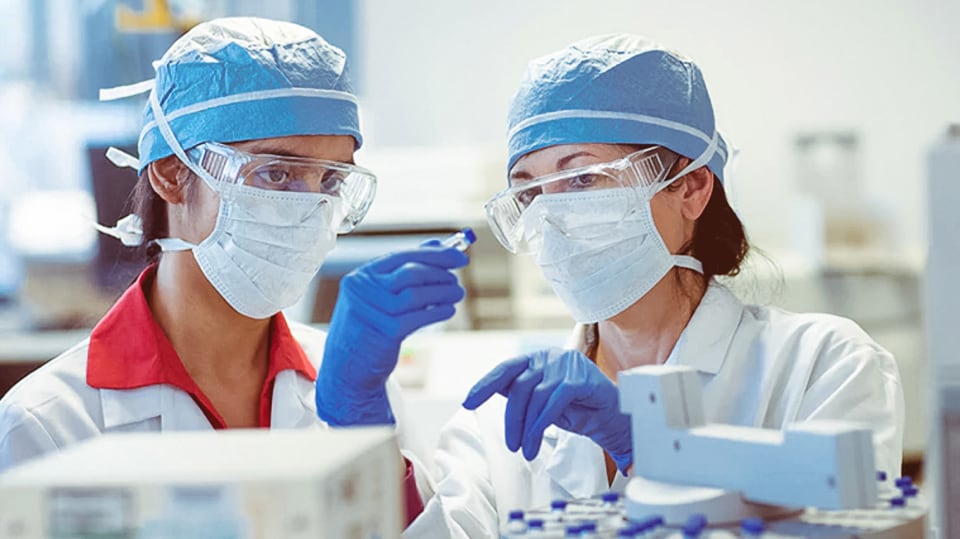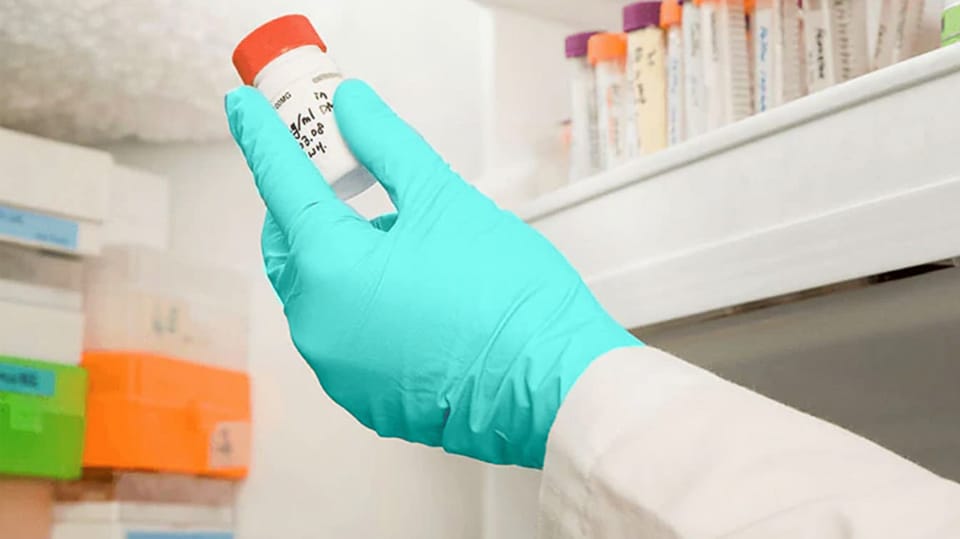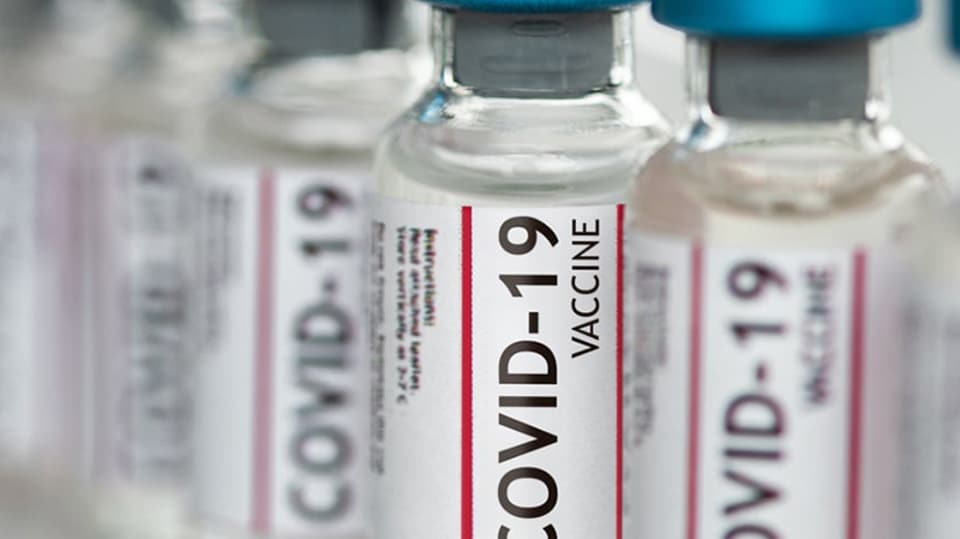Fifty-three thousand people will die this year from colon cancer. Joe will not be one of them.
Joe needed a colonoscopy, but his physician did not want the 65-year-old patient to leave home to have a lengthy, invasive procedure at a clinic. Instead, the doctor ordered a high-accuracy home detection test.
The test kit arrived via UPS, and Joe collected a sample. He personally packaged, labeled, boxed and reshipped it through UPS to a lab for analysis. He spent 45 minutes on these simple steps to protect his health.
The next day, Joe's doctor had results: No sign of problems.
The growing role of lab logistics
Analysis by lab and interpretation by physician gave Joe peace of mind. Equally important in today's patient care is the logistics process that transported Joe's medical samples.
Around the world, the COVID-19 pandemic has highlighted the growing role of lab logistics in healthcare. Doctors, researchers and patients increasingly rely on practice and research supported by fast, safe shipments of samples, vaccines, pharmaceuticals and other medical products.
Several trends highlight the new importance of lab logistics:
Home healthcare, for starters. Today, logistics partners can pick up or deliver medical samples nearly anytime and anywhere. A familiar bedroom, like Joe's, can become a care setting.
Doctors, researchers and patients increasingly rely on practice and research supported by fast, safe shipments of samples, vaccines, pharmaceuticals and other medical products.
Personalized medicine has also boosted the profile of lab logistics, partly because of the emergence of biologics — treatments from organic sources that can target actual illnesses, not just their symptoms. Vaccines are biologics, and they require careful temperature controls. Logistics partners with visibility and reliability safeguard the integrity of the sensitive shipments.
A third trend is value-based care. When healthcare providers can earn more based on outcomes, they look for reliable, on-time delivery and an agile, complex supply chain that can accommodate smaller, more-frequent shipments.
Fourth, technology has forged new links between healthcare and logistics. Automation and artificial intelligence improve specimen and device tracking, real-time visibility and transparency.
Finally comes the great trend maker, COVID-19. Fighting a pandemic on a global scale requires higher volumes of on-hand inventory and a supply chain with more flexibility. Nations are now readying to distribute billions of doses of potential vaccines through supply chains that must have uncompromising temperature and quality systems.
At the same time, as in Joe's case, COVID-19 has made telemedicine a preferred option for many doctors and patients. This has elevated the role of lab logistics in disease diagnosis and treatment.
Healthcare firms seeking a competitive edge really can't have a serious conversation without lab logistics on the agenda.
A competitive advantage with UPS Healthcare
Healthcare firms seeking a competitive edge really can't have a serious conversation without lab logistics on the agenda. That's true whether firms manage specimens, run clinical trials or conduct research. They all rely on samples and items transported at speed and with integrity.
But the challenges of lab logistics aren't for the faint of heart.
Lifesaving, expensive, time- and temperature-sensitive products can never be at risk of compromise. Specimens can carry infectious agents and require handling in processes free of risk at every point. A quality partner works for years to prepare its healthcare supply chain to manage such shipments.
At UPS, healthcare logistics has been a priority for a decade. This focus produced a healthcare network within a network, UPS® Premier. This portfolio of critical shipping options is an express lane for healthcare products. The network uses next-generation sensor and tracking technology to communicate shipment status to a Critical Package Network and Command Center. Lab sample packages "talk" with one another and with technicians, relaying real-time temperature, location, time in transit, in-flight or ground trajectory and other critical information.
Packaging is coming of age in modern lab logistics. The timing is right — UPS research finds that 41 percent of supply chain executives see packaging failure as a major supply chain challenge. A good lab logistics partner offers a portfolio of temperature-control packaging options of various sizes, temperature ranges and time durations, single-use or reusable.
UPS research finds that 41 percent of supply chain executives see packaging failure as a major supply chain challenge.
The need for speed in lab logistics
Speed matters. Right now, more than 80 percent of labs receive complaints about turnaround times for samples and results.
Earlier delivery means faster test results ... and better outcomes for patients. Speed is also good medicine for operating efficiency — 93 percent of healthcare execs say controlling supply chain and logistics costs is important. Wasted time means wasted money.
Specimen stability and viability are basic table stakes. The instant a sample is drawn, the clock starts ticking on its viability. Reliable transport and oversight through the supply chain ensures on-time delivery and a better patient experience.
Each of the world's 7.8 billion people are patients in waiting. People of all ages, classes and physical conditions rely on partnerships between healthcare and logistics providers to live long, healthy and productive lives.
Labs play an integral role in helping doctors diagnose conditions quickly and accurately, ensuring the best treatment plans. Modern medicine depends more and more on a shared purpose between labs and logistics.
Success springs from the same core philosophy: It's not a sample. It's somebody.
Leverage our lab diagnostics solutions to increase efficiency and diagnostic test turnaround time.





